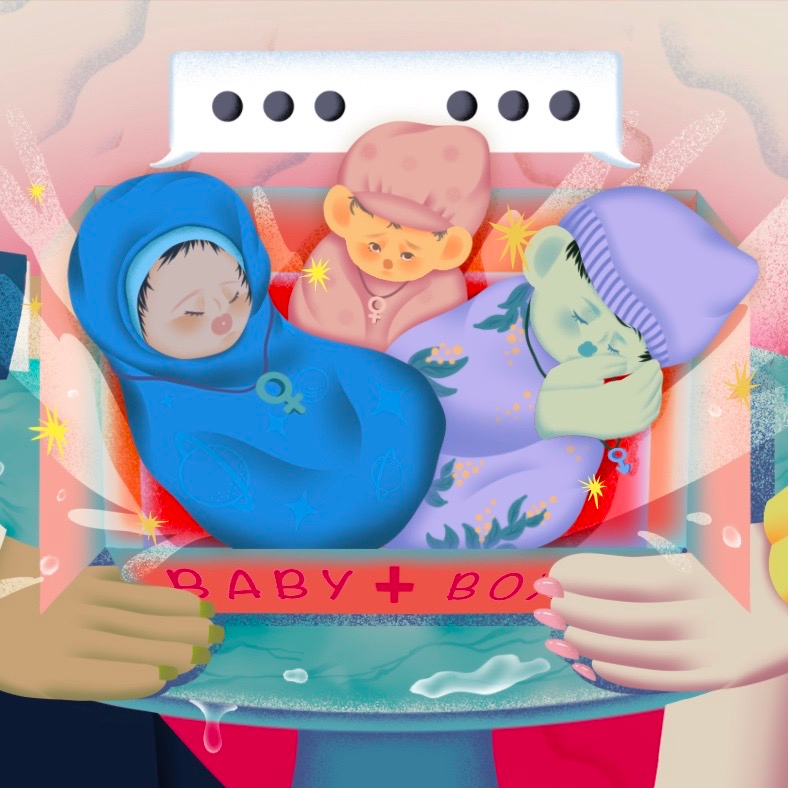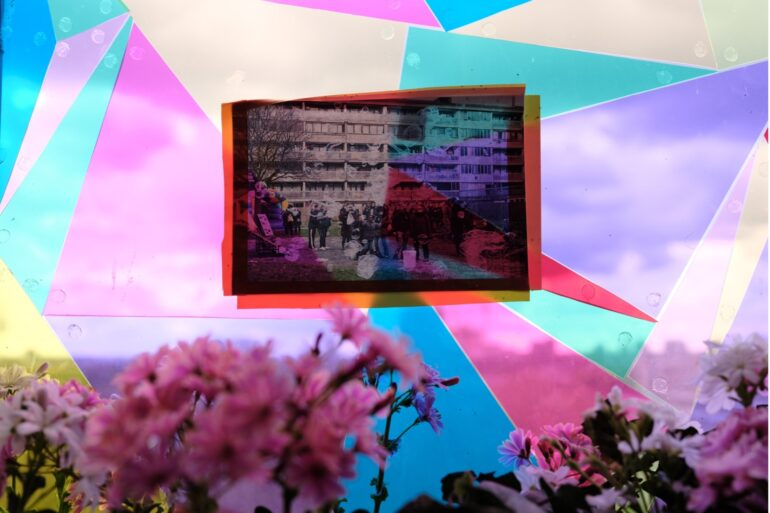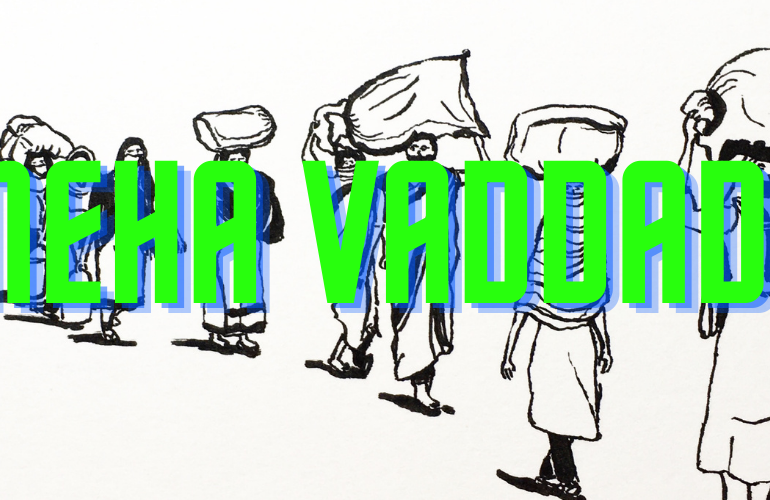If you’re an East or Southeast Asian person living through this current era of cinema, it feels like there’s much to celebrate right now. ESEA cinema over recent years has been gaining more positive critical reception and mass public intrigue than ever before, especially after a record-breaking weekend at the Oscars with Everything Everywhere All At Once snapping up awards left and right.
Without a doubt, this has immensely contributed to our visibility as a community to the wider world – dissembling the caricature portrayals of Asians continuously woven by the hands of white supremacy and presenting our own complicated truths of our cultures and lived experiences.
But how does this surge in ESEA representation on screen translate into our lived realities as people? In conversation with the ESEA cinema advocacy group MilkTea at the London community screening of Broker, I found out more.
“Film and television commands a great deal of soft power and cultural capital in wider society”, co-founder Chi Thai shares. Explaining how increased visibility plays into community empowerment she admits that representation in and of itself is not the only end goal, but “also how we are represented in that economy – which is why humanistic, complex and nuanced representation is so crucial on-screen.”
Korean drama Broker brings all the complexity and nuance you can imagine. On a road trip which begins with the unexpected union of a mother and two human traffickers who discover her abandoned newborn at a church ‘baby box,’ the film immediately confronts our notions of a family unit as a static, eternal, and predetermined relationship arrangement.
Heartwarm and heartbreak pulse throughout the entire story, as we become witness to the very human tendency to continuously seek and create belonging through our relationships with others, despite the scars of our pasts.
Moving beyond framing of criminalisation and towards intergenerational justice
Through highlighting the reality of black market baby trafficking the film makes room for us to understand family in its more expansive, truthful sense. Inspired by the rise of ‘drop box’ services operated by churches in South Korea and Japan for unwanted infants and the harsh reactions it evokes from the general public, director Hirokazu Kore-eda recognised an opportunity to spotlight a taboo and complex issue.
Breaking through one-dimensional flat portrayals of women who decide to give their babies away as uncaring, incapable, or selfish, Kore-eda’s Broker necessarily complicates that reality.
With its charming ensemble of misfits in the form of single mother So-young, church-volunteers turned baby traffickers Dong-soo and Sang-hyeon, and a young orphan Hae-jin, we come painfully close to their humanity while following them on their journey through the morally dubious practice of trafficking.
Over time, we see bonds of trust and familiarity form between them too as they learn more about each other’s motivations. Their mutually fractured familial relationships unite them around a shared purpose: to ensure So-young’s child ‘Woo-sung’ has the chance at life they never had.
In effect, the multi-faceted representation of trafficking agents that Broker offers us widens our perspective beyond the simple framing of criminalisation to explore the systemic reasons for this industry and why it’s so profitable.
The importance of community screenings
Beyond showcasing ESEA cinema to communicate the delicate nature of such complex human experiences and societal issues, the impact of MilkTea’s community screenings stretch beyond the films’ running time and this is already being widely recognised.
Their events have gone from strength to strength, from Shang-Chi watch parties, to post-event Q&As with the director of Better Luck Tomorrow at the BFI Southbank, and even preview screenings of Free Chol Soo Lee in both Manchester and London including talks from special guests Sarah Owen MP, besea.n. co-founder Viv Yau, and anti-racism campaigner and community worker Hau-Yu Tam.
In 2023, their screening of Everything Everywhere All At Once at London’s Picture House Central was awarded a Distinction for Best Single Event at the Film Society of the Year Awards.
“We seek to contextualise the films that we screen”, MilkTea co-founder Vicki explains, “by highlighting certain themes and conversations, we allow our audiences to engage with a film on a deeper level.”
The group uses various methods to do so – including commissioning ESEA artists to create works in response to the film for viewing and engagement by audience members after the screening. In doing so, they also create opportunities for ESEA artists and businesses to platform their own work, encouraging the thickening of support networks between different sectors of the creative industry where British ESEA people are few and far between.
With Vicki’s background as a film executive working across sales and distribution and Chi’s origins as an independent filmmaker, they both bring a wealth of experience and passion towards realising their common goal of advancing ESEA cinema and community healing.
“While we love to showcase ESEA film, it’s important to us to bring about change in the industry”, Vicki continues, “not only do we want to support the next generation of British ESEA filmmakers and shine a spotlight on them, but we want to ensure that the ecosystem is set up to support these filmmakers.”
Having both worked on a variety of films and partnering with the likes of A24, MUBI, Curzon, Modern Films, and Altitude, they are certainly critical voices of today on how the film industry has strides to make towards diversity, equity and inclusion.
Chi urgently reminds us, “we know that who creates behind-the-camera has a direct relationship to what we see on-screen which is why supporting British ESEA filmmakers is vital. Storytelling (and those allowed to make stories) is cut from the cultural fabric of human freedom (or lack of it). We need to create a system change that uplifts all.”
Subscribe to shado's weekly newsletter
Exclusive event news, job and creative opportunities, first access to tickets and – just in case you missed them – our picks of the week, from inside shado and out.

What we can expect next
Although the waves of success and visibility that Asian American and Pacific Islanders are experiencing over in America reverberate to other communities of the East and South East Asian diaspora in different regions, we are seeing limitations. Progress is still achingly slow in comparison for ESEA players in the British film industry.
This is not because there aren’t enough ESEA filmmakers in the UK, Vicki explains, but instead because there are not enough ESEA commissioners, executives in distribution, or programmers in UK festivals to advocate for backing of these titles. This is one area where we can expect to see advocacy and movement over time, and perhaps cross-border solidarity sharing knowledge, resources and platforms.
Moreover, a continued emphasis driving intentional representation of ESEA actors, directors, filmmakers, writers, and other players that reflects the diversity of the community for which it stands is going to be pivotal for the film industry going forward.
With screenings as a starting point for convening the wider community in conversation about how we can strategically push for more visibility in cinema and critically reflect on what this means in practice, we are witnessing a promising future for ESEA advocacy through creative practice.
As an organiser with an abolitionist practice, I found deep appreciation for the spaciousness and tenderness of Broker – a film which challenges our society’s tendency to homogenise what family should look like and frames justice solely in terms of a prison sentence. Hirokazu Kore-eda instead showed me what intergenerational and transformative justice really means in practice as we follow a motley crew’s journey to giving infant Woo-sung the life they never had. Warmly embracing this story, I look forward to what we will see next from Kore-eda and the rest of the ESEA film industry in years to come.
What can you do?
- Watch the trailer for Broker HERE
- Learn more about MilkTea and their initiatives to build inclusion, communities and audiences for East & Southeast Asian cinema in the UK
- Support ESEA cinema by getting tickets to Trans-forming Trans-missions – a programme of films by trans and non-binary filmmakers based in the UK and from Mainland China. Note: the event is a fundraiser, with all proceeds split between Queercare and Trans Well-being Team 跨儿心理小组.
- Delve into more ESEA cinema at the upcoming LGBTQ+ film and arts festival Queer East in April 2023, which showcases queer cinema from East and Southeast Asia to audiences in the UK.
- Check out Vicki Brown and Delphine Lievens Article on ‘An Examination of East and Southeast Asian (ESEA) Films in the UK and Audience Development’ to understand more about the history of ESEA cinema in the UK and how exhibitors can better cultivate British ESEA audiences.
- Read about the rising phenomenon of ‘baby boxes’ across Japan and South Korea which inspired Broker’s Director Hirokazu Kore-eda
- Explore more of Korean cinema in Cici Peng’s review of Park Chan-wook’s Decision to Leave
- Read more articles by I.K















